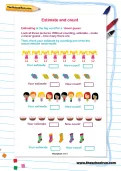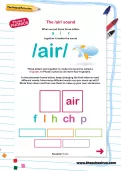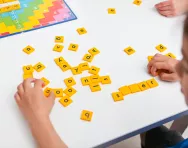Important update from TheSchoolRun
For the past 13 years, TheSchoolRun has been run by a small team of mums working from home, dedicated to providing quality educational resources to primary school parents. Unfortunately, rising supplier costs and falling revenue have made it impossible for us to continue operating, and we’ve had to make the difficult decision to close. The good news: We’ve arranged for another educational provider to take over many of our resources. These will be hosted on a new portal, where the content will be updated and expanded to support your child’s learning.
What this means for subscribers:
- Your subscription is still active, and for now, you can keep using the website as normal — just log in with your usual details to access all our articles and resources*.
- In a few months, all resources will move to the new portal. You’ll continue to have access there until your subscription ends. We’ll send you full details nearer the time.
- As a thank you for your support, we’ll also be sending you 16 primary school eBooks (worth £108.84) to download and keep.
A few changes to be aware of:
- The Learning Journey weekly email has ended, but your child’s plan will still be updated on your dashboard each Monday. Just log in to see the recommended worksheets.
- The 11+ weekly emails have now ended. We sent you all the remaining emails in the series at the end of March — please check your inbox (and spam folder) if you haven’t seen them. You can also follow the full programme here: 11+ Learning Journey.
If you have any questions, please contact us at [email protected]. Thank you for being part of our journey it’s been a privilege to support your family’s learning.
*If you need to reset your password, it will still work as usual. Please check your spam folder if the reset email doesn’t appear in your inbox.
The parents’ guide to after-school childcare: childminders

How do you find an after-school childminder?
To find an after-school childminder, your first port of call is your Local Authority’s Family Information Service.
The Professional Association for Childcare and Early Years (PACEY) also has an online directory of registered childminders, and many childminders advertise on local parenting listing sites. Your child’s school may also be able to help. ‘Some have lists of childminders serving the school,’ says Sue Asquith, registered childminder and PACEY spokesperson. ‘Asking other parents is another good starting point.’


Start the Reception Learning Programme!
- Weekly maths & English worksheets direct to your inbox
- Follows the National Curriculum
- Keeps your child's learning on track
Ideally, start looking for a childminder a few months before you need a place: for example at the end of the summer term for a September starter. ‘If you leave it too late you may miss out, but signing up too early means you may have to pay a retainer,’ says Sue.
What should you consider when choosing a childminder?
First, decide what you’re looking for. ‘Because childminders are self-employed, their provision varies hugely,’ says Sue. ‘If there are several with spaces, visit them all so you can compare.’ Consider ratios: some childminders only look after school-age children, whereas others have babies and toddlers too.
Childminders can care for up to six under-eights at any one time, but there’s no set limit on how many over-eights they look after. There’s also no compulsory register for childminders of over-eights, although most join the Ofsted voluntary register.
Other things to ask include:
- Which areas of the house are used for childminding?
- Will your child walk or be driven home from school?
- Will the childminder be looking after other children – including their own – at the same time?
- What activities are provided – and is there flexibility? ‘Sometimes children need to chill out after school; at others, they might want to run off energy in the park,’ says Sue.
- Does the childminder provide a drink and snack and/or a meal?
- If you’ll need extended childcare for the school holidays, can the childminder provide it?
- If your child has time off for holidays or illness, will you still have to pay?
- What happens if the childminder is ill? ‘Some have arrangements with other local childminders to cover illness, where ratios allow,’ says Sue.
Before you sign up, make sure that…
- You’ve read and are happy with the contract (and make sure you have a written agreement)
- You’ve seen references from other parents
- You’ve seen the childminder's Ofsted report and public liability insurance documentation
Handling tricky areas
Because your childminder is likely to be looking after several children, balancing their needs may be difficult. Here are some potential flashpoints to discuss in advance:
Homework
‘Some childminders, particularly those looking after younger children too, might provide space and facilities to do homework, but not actually help with it, while others may be more involved,’ says Sue.
After-school activities
Will the childminder pick up from clubs held on school premises, or transport your child to and from off-site activities? Don’t sign up for anything without checking first. Also, ask if the childminder’s own children go to any clubs, and how that will affect your child: will he spend half the afternoon watching her son’s tennis lesson?
Meals
If the childminder cooks a meal but you’d prefer your child to eat dinner at home, what will he do while they’re eating? If he eats with the childminder, will she consider his food preferences?
Screen time
How much is allowed, and on what equipment? How will the childminder ensure it’s shared fairly between all the children?
Lateness
If you’re delayed at work, what will happen? Some childminders impose a fine, especially if it’s a regular occurrence.
After-school childminding: how much will it cost?
According to the Daycare Trust, the average weekly fee for an after-school childminder is £72.78. Some accept childcare vouchers.
What mums say about after-school childminders…
‘The advantage of using a childminder is that William gets away from school at the end of the day: it’s a home-from-home environment. She also looks after my toddler so the boys have time together.’
Becky, mum to William, eight, and Max, three
‘My childminder’s daughter is in the same class as my son, and the friend/employee relationship can be difficult, especially if Joseph has misbehaved at school and the childminder has to relay the message.’
Jenni, mum to Joseph, seven
‘Although they love playing on the Wii or watching TV, I feel my kids get less attention than the pre-schoolers who are with the childminder all day.’
Deborah, mum to Maddie, 10, and Charlotte, seven








